Who are We?
On September 19 and 20, 2024, the community centre of SAB’s (Sønderborg Housing Association) became an innovation hub for the Danish social housing sector. The two-day event organised by ARV, co-organised by SAB, ProjectZero and Housing Europe, aimed to showcase energy- and cost-efficient technical solutions for social housing and engage with tenants.
Sønderborg, located near Denmark’s border with Germany, is paving the way for an inclusive green transition. The large-scale demonstration project in Sønderborg is led by SAB (Sønderborg Housing Association – Salus Boligadministration) together with a well-knit team of frontrunners ProjectZero, Danfoss, DTU – Technical University of Denmark and Wygwam Danmark, a division of Niko to increase decentralisation renewable energy production and energy efficiency via low temperature district heating and smart home control systems.
The pilot activities are being rolled-out in SAB’s Department 22 (432 apartments) and 75 (38 homes in semi-detached houses). While the former is focused on reducing district heating return temperature from the radiator system in the apartments and water heaters via an innovative ‘after cooling principle’, the latter has installed a smart home lighting control system and is monitoring and forecasting energy demand. Both pilots are using solar PV panels with a shared storage system with flexibility functions.
Introducing demonstrated energy efficient measures in social housing connected to district heating networks
The seminar, moderated by Henrik Madsen from BL-Danmarks Almene Boliger, presented ARV Sønderborg’s demonstration to managers and technical staff from social housing associations in Denmark as well as district heating companies.
Professor Henrik Madsen from the Technical University of Denmark (DTU) emphasised the importance of data-driven methods and AI in optimizing heat demand and district heating systems. He discussed how digital models and data collection can improve energy efficiency and reduce costs.
Jan Eric Thorsen from Danfoss presented the Leanheat intelligent heating control system, an AI based software and control system applied as part of the smart control of the building’s heating system. A dynamic model that uses weather predictions and indoor temperature measurements to determine the optimal heating supply temperature without sacrificing comfort. It addresses the challenge of reducing uncontrolled heat losses and emissions, achieving 5-7% energy savings without compromising comfort.
In combination with the control system, the aftercooling concept developed with ARV project, is an innovative district heating substation for large multi-apartment buildings where the domestic hot water preparation and reheating of the circulation flows are decoupled and obtained in two separate heat exchangers connected in parallel. The concept provides a reduced return temperature to the district heating network.
’For example, aftercooling might be useful in departments where penalties are imposed for not cooling return water sufficiently before it goes back to the district heating company’, says Brian Skou Juhler Larsen, technical director at SALUS Housing Administration/Sønderborg Housing Association.
Jonas Duus Ranum from Niko-Servodan, Wygwam, presented energy-saving products and Smart Home solutions that allow residents to control their energy and heating consumption via an app on their phones, as well as a display in their homes.
‘Social housing represents 20 percent of Denmark’s housing stock, and there is a need to balance energy and climate ambitions with rent levels and housing affordability’ pointed Solveig Raaberg Tingey, deputy director of BL-Danmarks Almene Boliger.
Negotiations are underway in Denmark to stimulate the installation of solar panels, but Danish regulation is not helping. At the moment, profits from solar energy must revert into the grid, which involves additional costs such as tariffs. This complicates the negotiations, but there’s hope that the recently revised EU directives could offer a solution.
As highlighted by Clara Mafé, Innovation Officer at Housing Europe, the recently revised EU directives are pushing for more projects like Sønderborg’s. Particularly, the Energy Efficiency Directive (EED) and the Energy Performance of Buildings Directive (EPBD) indicate that after 2030 district heating for new buildings will only be allowed under certain criteria related to the progressive greening of the energy source.
The Social Climate Fund (SCF), a financial mechanism that aims to aims to address the social and distributional impact of the new emissions trading system for buildings and road transport, provides a window of opportunity to continue investing in efficient district heating systems in social housing. schemes promoting green energy and energy-efficient solutions in social housing.
Find more information about the ARV Climate Positive Circular Community in Sønderborg, Denmark at this link.
The event was part of the EU-funded project ARV, which aims to accelerate the renovation rate in Europe through the roll-out of Climate Positive Circular Communities.
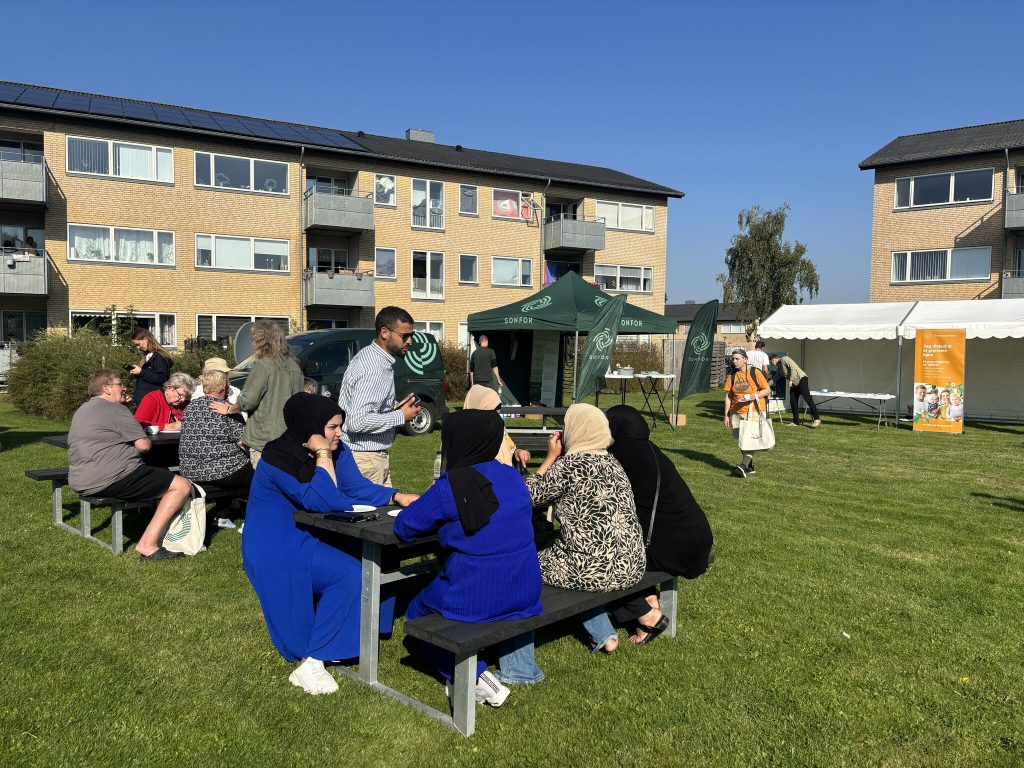
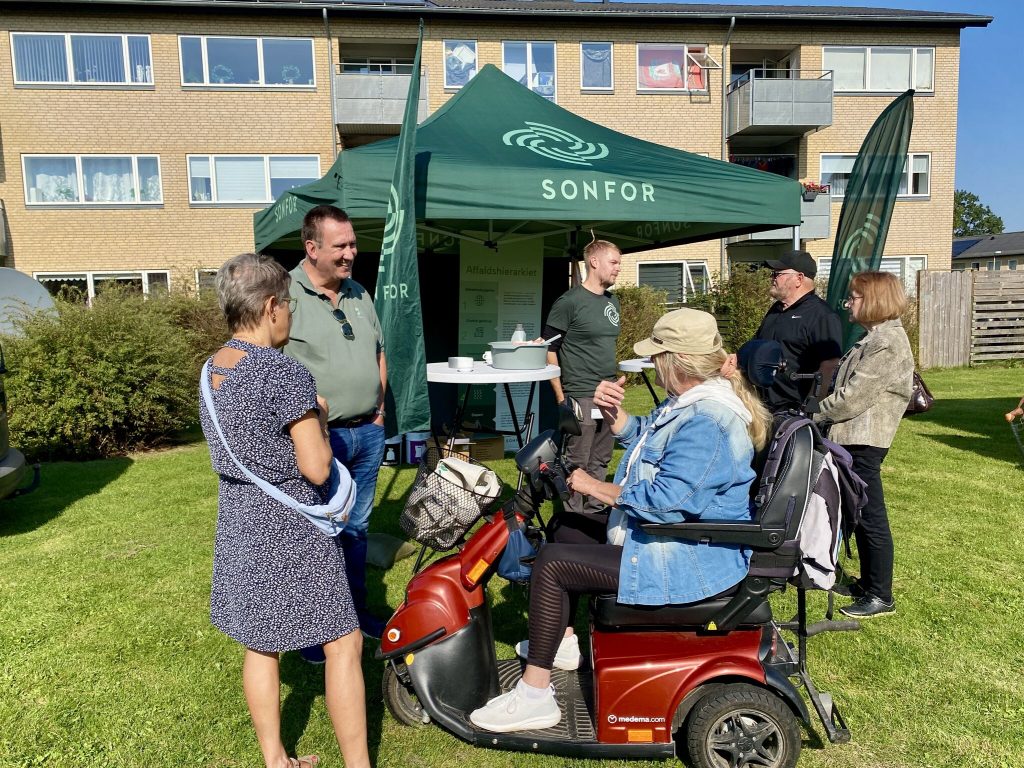
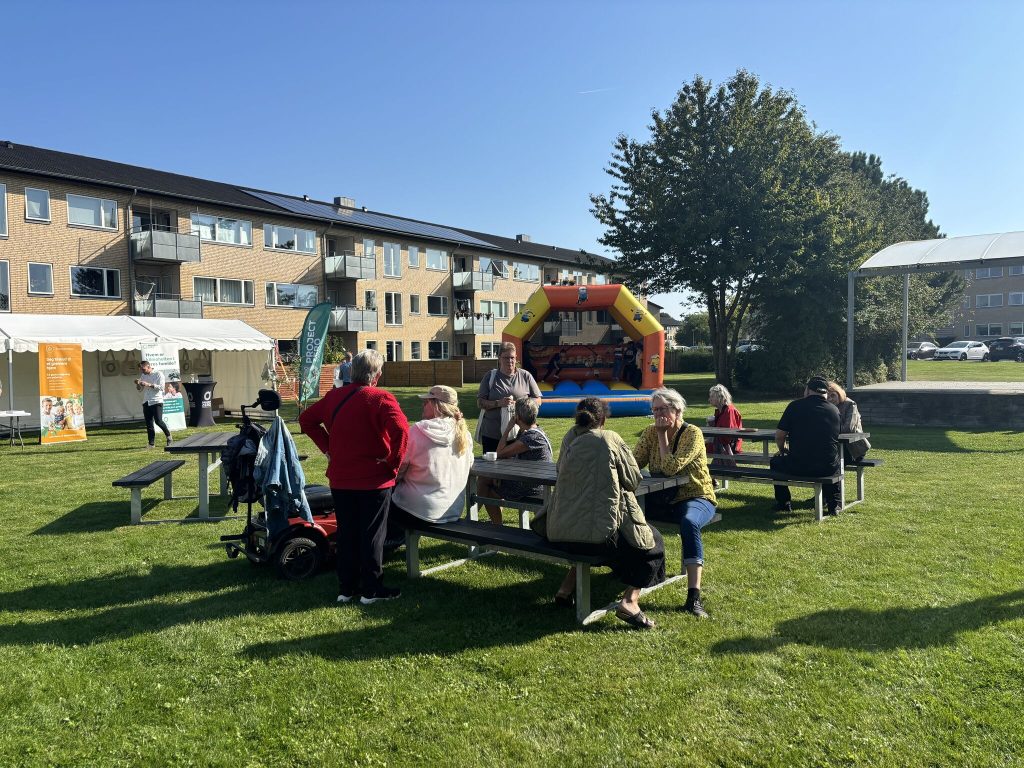
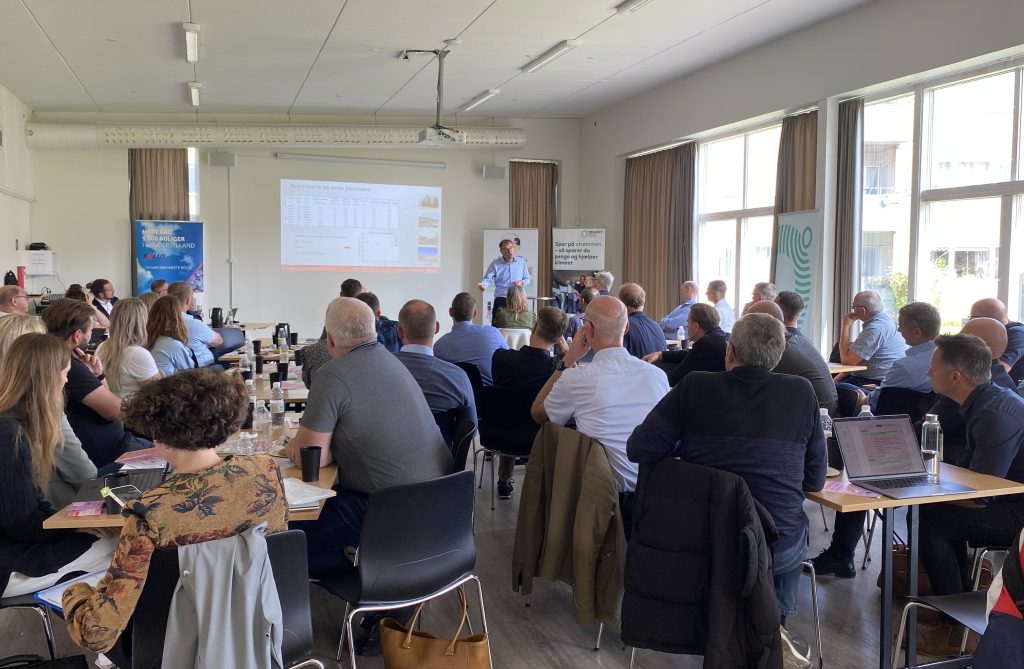
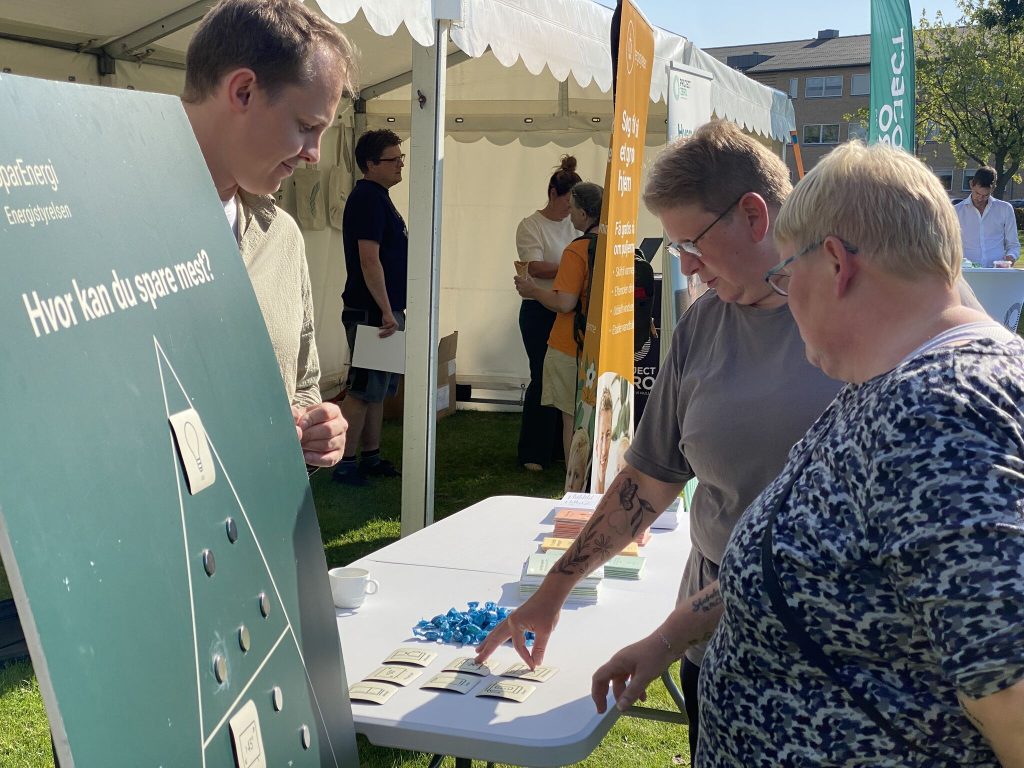
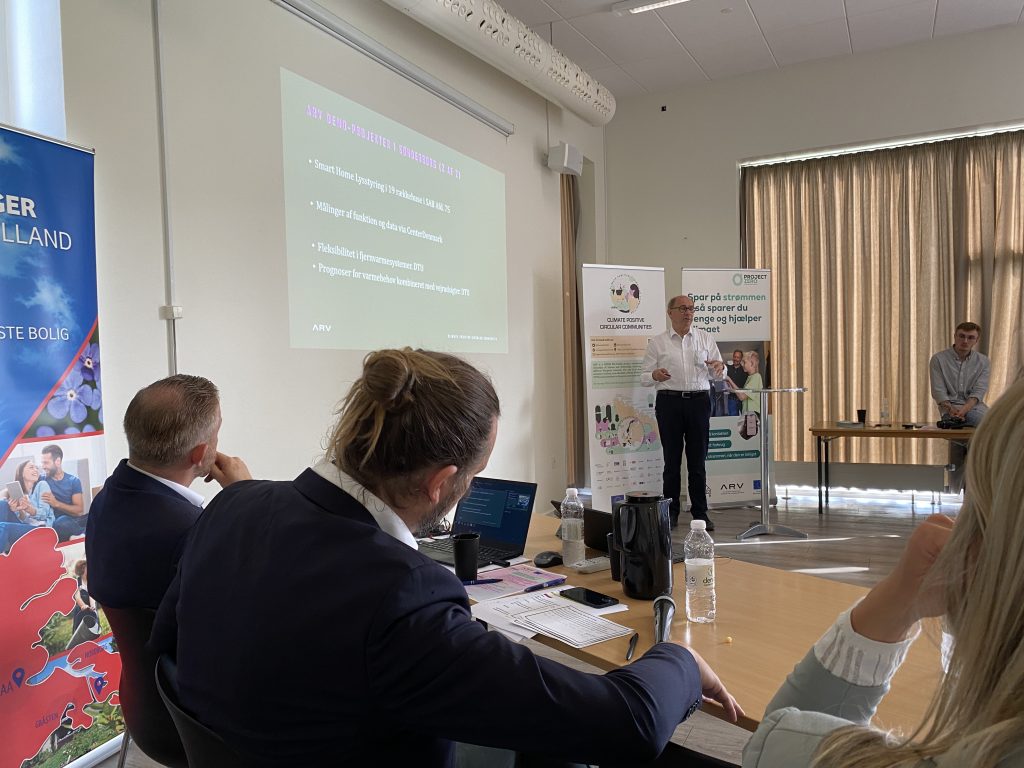

Subscribe to our Newsletter
Want to know more about the new generation of climate positive circular communities (CPCC)? Sign up to our bi-annual newsletter (no spam guaranteed)!